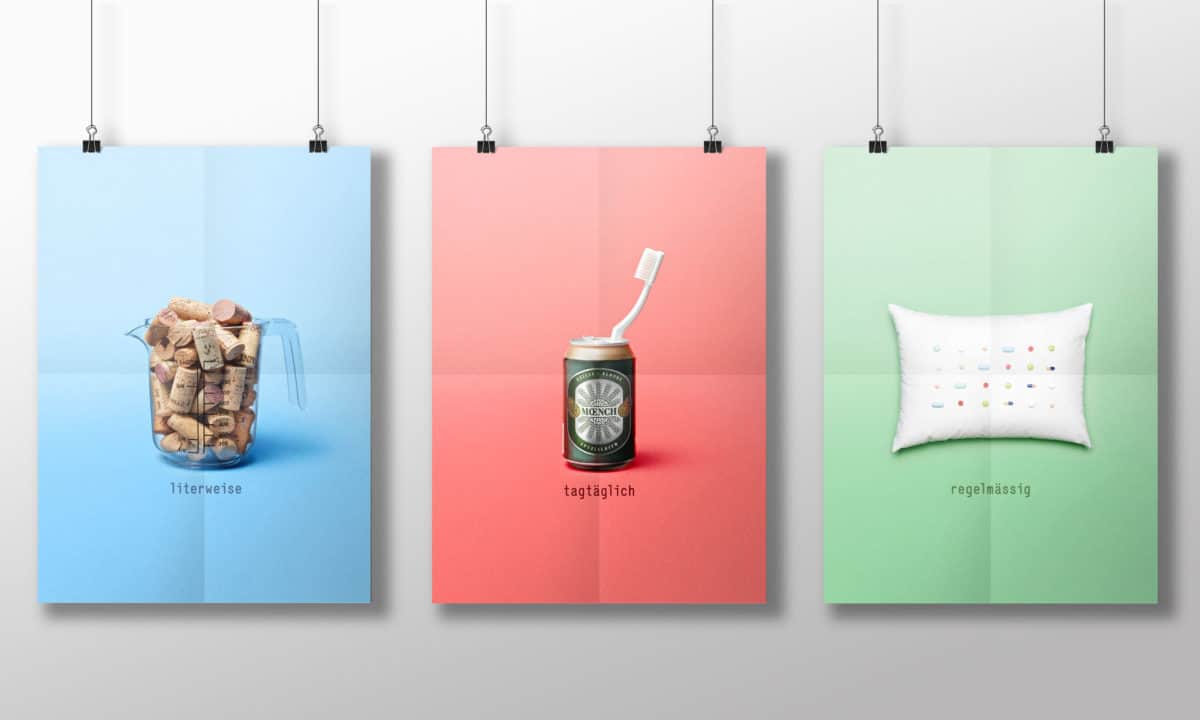Design: Creative for difficult life situations
The Zurich agency Gestalten develops communication concepts for clients such as Ikea, Feller and ZHAW. In the process, the agency's affinity for tasks that focus on more than pure marketing and advertising goals often becomes apparent: the development of concepts for institutions that care for people in difficult life situations.

Communication about sensitive topics
What if the creation has to deal with failure, powerlessness, fear and being at the mercy of others, and the aim is not to generate clicks but to overcome complex behavior patterns, addictions or shame barriers? We are talking about advertising for organizations that care for people whose everyday lives are marked by illness, addiction or experiences of violence: addiction counseling, victim support, life counseling or even organizations for people with mental or physical suffering. How can targeted advertising be designed for such clients and is there still room for aesthetics, design and beauty?
Finding the right promise
Such communication tasks are tricky. The question quickly arises as to what promises can be made. What can be achieved at all? What are realistic behavioral steps? In order to be able to clarify these questions, it is necessary to deal intensively with the topic and to engage in a dialog with the experts on the client's side. In this environment, creatives are particularly challenged.
Use the self-motivation
In the case of the current campaign for the Addiction Center Zurich, the decisive factor for Gestalten's concept development was the fact that most clients seek help on their own initiative. This fact and the associated will to take change into one's own hands are crucial for success.
With this awareness, the advertising for addiction counseling focused on a single promise: We support everyone in changing their personal behavior through their own efforts.
"Gestalten asked many questions in order to properly understand our work. This resulted in the concept, which sums up the success factor of our work in a refreshing and striking way," says Sabin Bührer, Head of Prevention and Communications Officer at the Addiction Center Zurich.
Raise awareness
Sometimes considerations can also lead to placing communication at the very front of the behavioral process. Because in many cases, the people concerned are not even aware that a certain behavior could be problematic. According to Gestalten, a big step has already been made if the chosen advertising media succeed in raising these questions and motivating the people addressed to reflect on themselves.
No fear of light fare
There is often the opinion that sensitive topics must be treated with appropriate restraint. However, a light-hearted approach can help to break down inhibitions and shame and integrate the topic into everyday life. One example of this is the international "Dry January" initiative. The initiative is designed to motivate people to abstain from alcohol for a month. This is the first step toward reflecting on one's own consumption behavior.
Gestalten is taking an unusual approach with its awareness campaign for the Zurich victim counseling center. Using comparisons from film and comics, it aims to show how ambivalent the treatment of violence is in our society and to demonstrate how serious the consequences are for those affected.
"Professionals are used to dealing with victims of violence in a sensitive and reserved manner. The strong idea of making violence visible in an exaggerated way shakes things up and opens the eyes of a broad public," says Fedor Bottler, head of the specialist unit at the Zurich Victim Support Foundation, with conviction.
The decisive factor is respect
It doesn't matter whether addiction problems, violent experiences or psychological and physical suffering are involved. The key is to approach people as individuals who are capable of taking action, to take their problems seriously, but at the same time to motivate them to bring about change through their own efforts. This requires one thing above all: respect for the people affected.
* Thomas cancer is the owner of the Zurich-based agency Gestalten. Krebs' fascination with communicative challenges and human destinies - regardless of their orientation - inspired him to write this guest article.





















